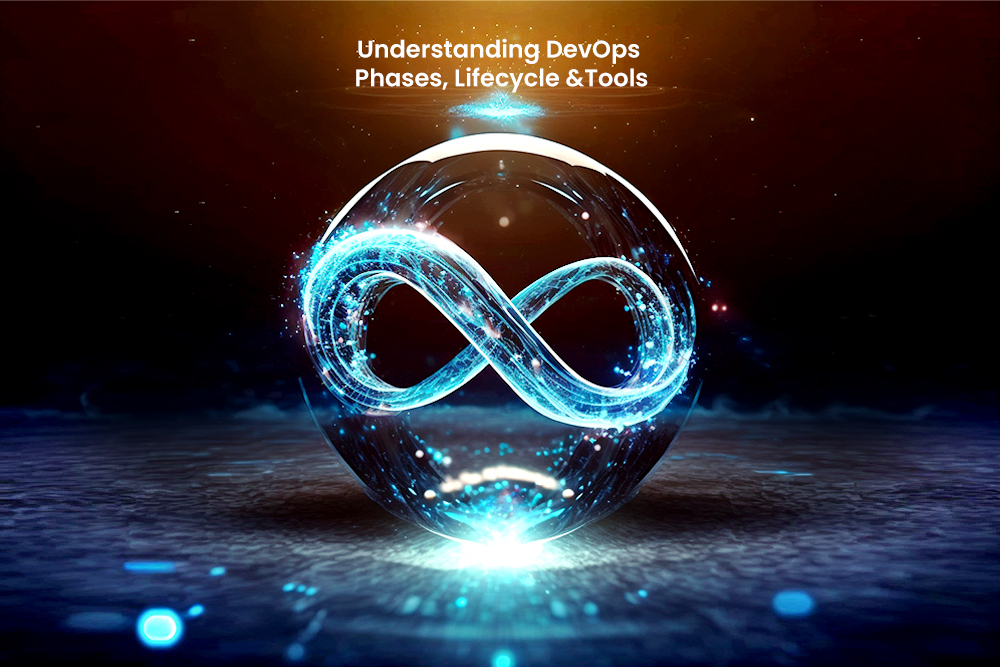Revolutionizing Software Development: Understanding the Phases, Lifecycle, and Tools of DevOps
DevOps refers to the combinations of Development and Operational Skills. Basically, to overcome the long, time-consuming process of traditional waterfall models, DevOps are preferred. Nowadays many companies are interested to employ engineers who are skilled at DevOps.It integrates development and operations i.e. it takes a combination of software developers and IT sector.

Phases of DevOps
DevOps engineering consists of three phases:
- Automated testing
- Integration
- Delivery
DevOps lifecycle
DevOps mainly focuses on planning, coding, building and testing as the development part. Added is the operational part that includes releasing, deployment, operation, and monitoring. The development and operational part make up the life cycle.
DevOps team & work style
In business enterprises, DevOps engineers create and deliver software. The main aim of this team, in an enterprise environment, is to develop a quality product without the traditional time consumed.
DevOps employs an automated architecture which comes with a set of rules, a person who has worked as a front-runner for the organization, will lead the team based on the company’s beliefs and values.
A Senior DevOps engineer is expected the following skills
Software testing: The responsibility increases along with coding new requirements to test, deploy and monitor the entire process as well.
Experience assurance: The person follows the customer’s idea to develop the end product.
Security engineer: During the development phase the security engineering tools to be used in the security requirements.
On-time deployment: The engineer should ensure that the product is compatible and running at the client’s end.
Performance engineer: Ensures that the product functions properly.
Release engineer: The role of the release engineer is to address the management and coordination of the product from development through production. Release ensures the coordination, integration, flow of development, testing, and deployment to support continuous delivery and maintenance of the end-end applications.
System admin: Traditionally system admin focuses only on the server running. But DevOps handles the open source pros, passionate towards technology, and hands-on with development platforms and tools. They maintain the networks, servers database and even support.
Usage of the DevOps tools
- The Git tool is a version control system tool used to develop the source code by developers and send it to the Git repository and we have to edit the code in the repository.
- Jenkins is a powerful application tool that allows the code from the repository using the git plugin and builds it using tools like Ant or Maven.
- Selenium is an open-source automation tool. The Selenium tool performs regression and functional testing. Selenium is used for testing the code from Jenkins.
- Puppet is a configuration management and deploys testing environment.
- Once the code is tested, Jenkins sends it for deployment on the production server.
- Then the completion of Jenkins it goes to be monitored by tools Nagios.
After the monitoring process, Docker containers provide a testing environment to test the built features.
Basic technical knowledge for DevOps recruiters:
- The DevOps recruiters should follow basic methodologies such as agile, continuous delivery, continuous integration, microservices, test-driven development, and infrastructure as a code.
- They must know the basic scripting languages such as Bash, Python, Ruby, Perl, and Php.
- The recruiters must know the infrastructure automation codes such as Puppet, chef, Ansible, Salt, Terraform, Cloud formation, and Source code management such as Git, Mercurial, and Subversion.
- The developers should study cloud services such as AWS, Azure, Google Cloud, and open stack.
- Another skill is orchestration. In programming, to manage the interconnections and interactions among the private and public clouds.
- Next one is containers, a method of OS virtualization that allows you to run an application and its dependents in a resource-isolated process, it includes LXD, Docker.
- The recruiters should be able to manage multiple projects, simultaneously.
- They must know the usage of tools for continuous integration and delivery. Such as Cruise control, Jenkins, Bamboo, Travis CI, GOCD, Team Foundation server, Team City, Circle CI
- Testing tools such as Test Complete, Testing Whiz, Serverspec, Testinfra, In Spec, Customer Driven Contracts.
Recruiters must know the monitoring tools such as Prometheus, Nagios, Icinga, Zabbix, Splunk, ELK Stack, collected, CloudWatch, Open Zipkin.
In conclusion, DevOps combines development and operational skills to streamline the software development process, with a focus on planning, coding, building, testing, releasing, deploying, operating, and monitoring. The DevOps team is responsible for creating and delivering quality products in an enterprise environment using automated architecture and a set of tools such as Git, Jenkins, Selenium, Puppet, Nagios, and Docker. DevOps recruiters should have basic technical knowledge of agile, continuous delivery, scripting languages, infrastructure automation, cloud services, orchestration, containers, and project management, as well as proficiency in various tools for continuous integration and delivery, testing, and monitoring.
Centizen
A Leading IT Staffing, Custom Software and SaaS Product Development company founded in 2003. We offer a wide range of scalable, innovative IT Staffing and Software Development Solutions.
Contact Us
USA: +1 (971) 420-1700
Canada: +1 (971) 420-1700
India: +91 63807-80156
Email: contact@centizen.com
Our Services
Products
Contact Us
USA: +1 (971) 420-1700
Canada: +1 (971) 420-1700
India: +91 63807-80156
Email: contact@centizen.com






